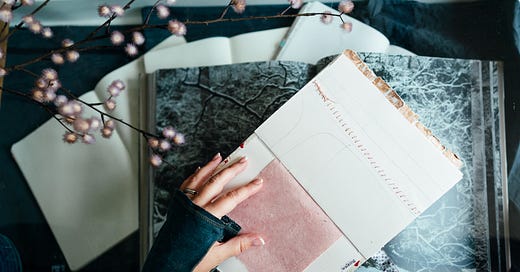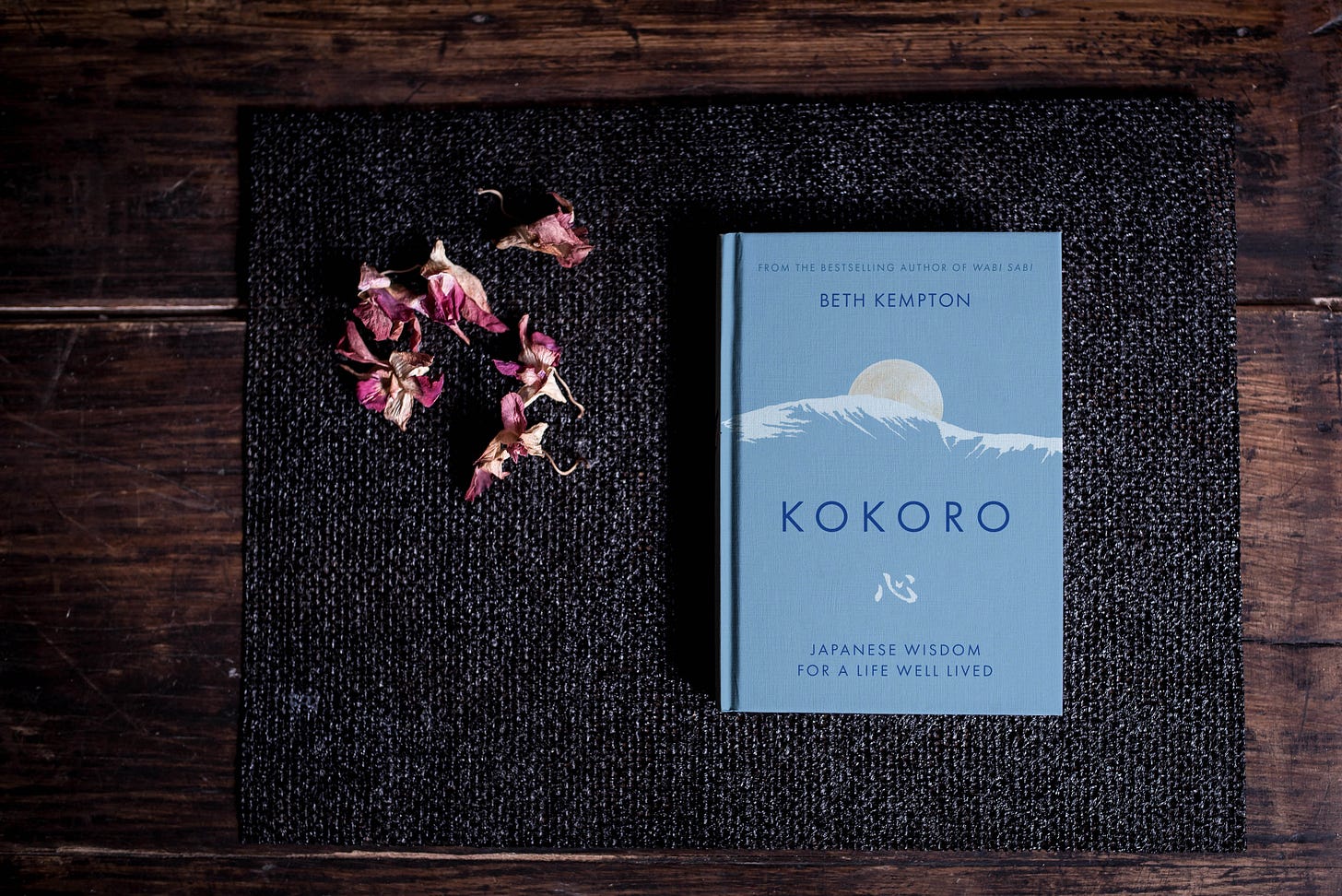Several years ago I wrote a book called Wabi Sabi: Japanese wisdom for a perfectly imperfect life. In it, I explored the beauty of imperfection and what the concept of wabi sabi could teach us about acceptance and letting go. What I have never told anyone is that on submitting the manuscript, I was left with a sense of something being incomplete, but I was not sure what.
Towards the end of Wabi Sabi I had shared an experience of time slowing to the point I could almost see a new memory being imprinted on my heart. I wrote about it to illustrate a point, without realising that reliving it had loosened the ribbon on an old scroll of questions I had gathered in my twenties and thirties, but had rolled up and put away when I got busy with my career and, later, with family life. Questions about time and meaning, mortality and mystery, and how to navigate life so we have no regrets.
As I hit send on the Wabi Sabi manuscript, got up from my chair and turned to the window of my attic writing room, the forgotten scroll fell from my lap and unravelled, spilling the questions all over the floor. I knelt and gathered them up carefully, knowing that as one story finished, another was just beginning.
That story would take me back to Japan several times over the next five years, as I ran headlong into midlife, with two small children, a growing business, a deepening furrow above my right eyebrow, and fistfuls of questions about life, which seemed to be rushing by faster every day.
It would take me to the very edges of my experience as a human being as I heard a knock on the door, and opened it to find death standing there, waiting to take my mother. It would see me whisper her through the portal between this world and whatever lies beyond, crush me to dust in the wake of her passing, and see me slowly take shape again, with the help of kind strangers, old sages, and three sacred mountains in a remote part of Japan.
That story would become Kokoro: Japanese wisdom for a life well lived. Yesterday I submitted the edited manuscript for this, my sixth book, knowing that part of me will always remain in its pages like a pressed flower, a cherry blossom that drifted from its branch on the day my mother died.
As I rolled up the scroll and hit send on the email to my editor, I wondered what seeds of a new beginning had been sown in the ending of that particular chapter.
A couple of years ago, in that quiet time between Christmas and New Year which I call ‘the Hush’, I climbed the ladder into our attic and pulled down three boxes of old journals. There were more than a hundred of them, dating back to my teens. They carried all kinds of scribbles, stories and observations. Some were thin and flimsy, others were hardbacked but worn at the edges, revealing my changing tastes in stationery and the frequency with which I wrote in them. You could tell my mood from my handwriting, and old postcards fell out where the sticky tape had dried up with age. It was interesting to see how the journals from the years I have made major life changes were always the fattest ones full of stuff - cuttings, business cards, shreds of fabric, old tickets and other scraps. When I need to figure something out, I become a scavenger.
When I re-read what I had actually written, I saw that each one was a doorway to an old memory. I could remember where I was physically, and in my life, when I wrote each entry. But more than that, and what I hadn’t been expecting, was that tucked between my ramblings were clues as to what I would write in my books in the future.
Flicking through the journals I noticed that I had, over and over, used the exact words that would appear in the titles and sub-titles of my books years later. It was the strangest thing. I kept reading and discovered so many ideas that I would later think had only just arrived, when in fact my heart had been speaking those ideas aloud for a long time. I just hadn’t been paying attention.
Every ending carries the seed of a new beginning.
We plant those seeds, without even realising we are doing it, because there are some things we know before we know that we know them. We might even write them down, over and over, without actually realising the sentences we are writing are signposts for our life-travelling selves. In this way, our journals from the past can guide us now, and our scribblings in the now can be the fertile ground for what we write, ponder about and explore in the future.
If you’re stuck for something to write about, try opening up an old journal at random and see what you find, or go through a stack of them systematically and notice what themes come up over and over. Look for patterns, or connections between things. Probe them further. Write about them. See where it leads.
Maybe you’ll discover a trail you have laid for yourself, that will lead you somewhere interesting now.
Nothing is ever truly finished, and that matters, because it means we never really have a blank page.
Tell me, what themes come up over and over in your journal scribblings?
Beth Xx
PS My new book KOKORO: Japanese wisdom for a life well lived is OUT NOW. I hope you love it.
PPS Subscribe to receive my soulful essays into your inbox for free. Upgrade to paid to join my friendly writing community SoulCircle, for year-round inspiration and support, beautiful Live Writing Circles and more (with a lovely discount if you join for a year!)
Image: Holly Bobbins Photography







Lying in bed this morning, wide awake way too early (Thank you, time change.) I remembered vividly a heated conversation I had with my now ex-husband in the driveway of our house. He was defending his relationship with his mistress, insisting "With her, I'm never lonely!" My response was, "No other human can ever take your essential loneliness from you. Only God can do that. If you keep chasing other humans to do that for you you're going to be right back here over and over again."
He stomped off angrily, but is currently in training to become an Episcopal priest (and still happily married). So, maybe he listened? Regardless, I find myself, in the wake of the end of a long-term relationship realizing I have to take my own advice. The end of loneliness was never something I chased, but I've chased other things that were bigger than any other human could hold in their hands. And that realization has perhaps offered the insight I needed to stop avoiding this book that has been chasing me to write it for a decade.
This was beautiful to read, Beth, and it brought up sadness for me. I don't have journals from when I was younger because re-reading them as a slightly older teenager upset me – reading how unsure or sad or confused or however I was feeling felt too raw, 15-yr-old me was saddened by 13-yr-old me. And so I got rid of those journals and decided not to write any more because I didn't want an inked reminder of past pain – I wasn't able at that time to hold my own difficult feelings. And now, several decades later having journaled for the past several years, knowing how helpful I find it and being better able to support myself, I wish I could have utilised this tool as a youngster. What might I have read now in the words of younger me?